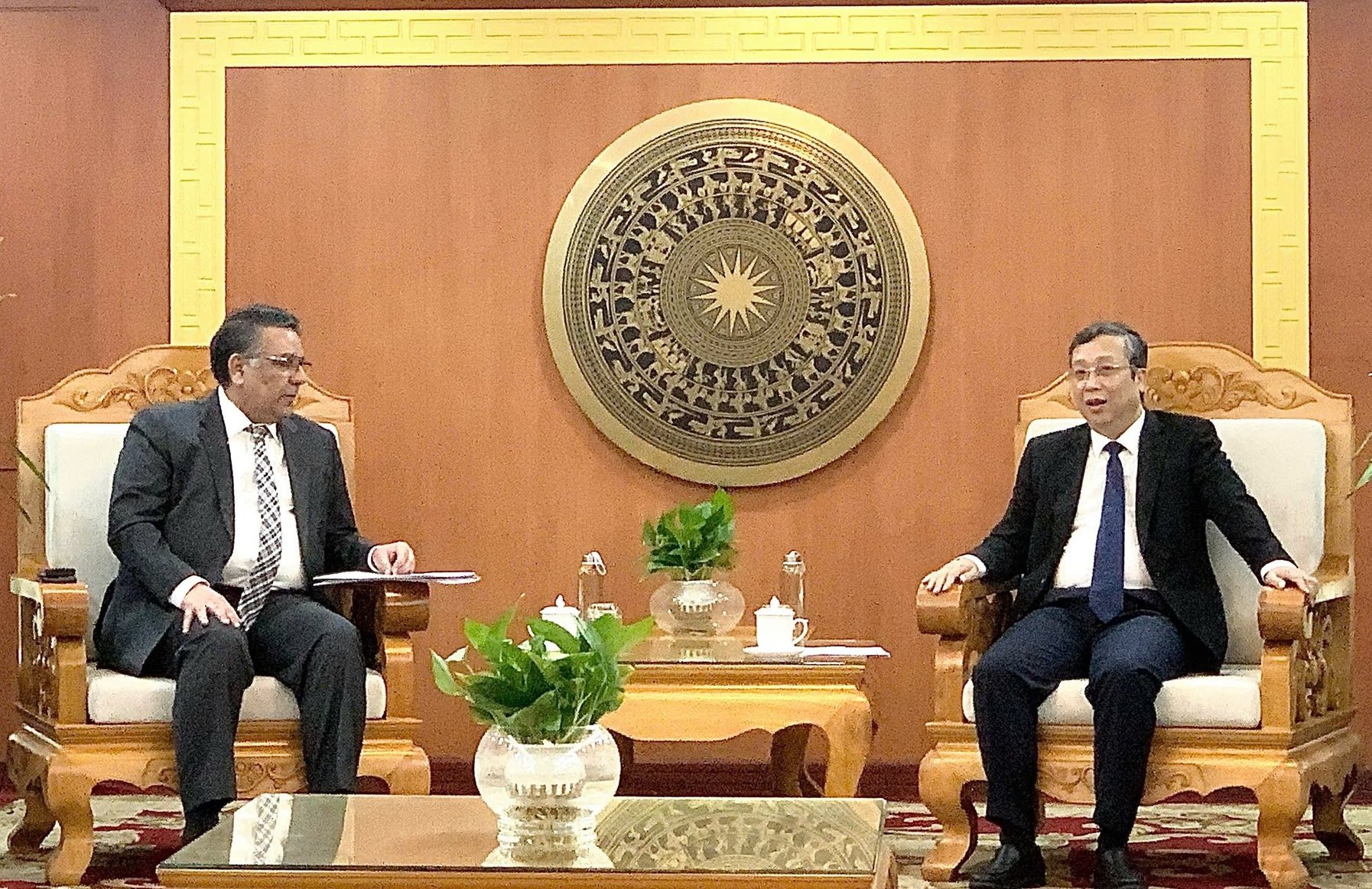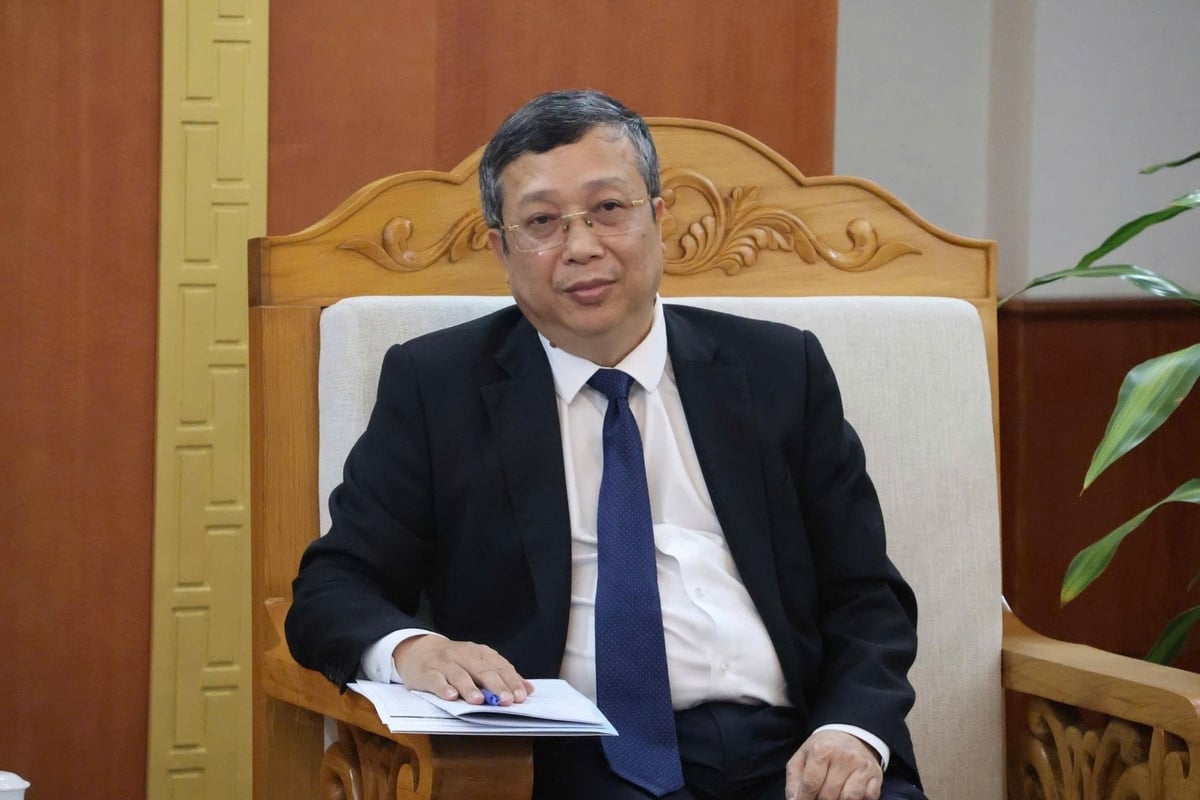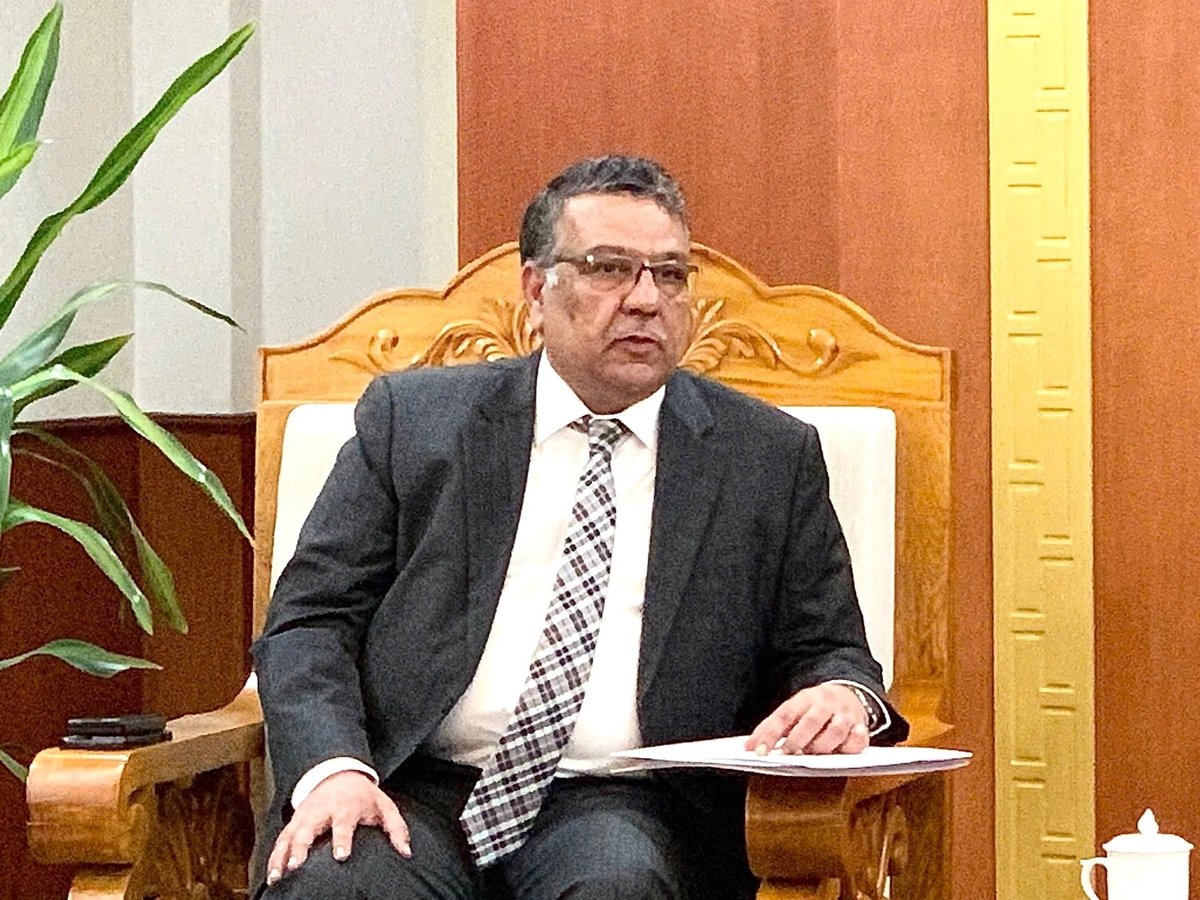December 30, 2025 | 14:32 GMT +7
December 30, 2025 | 14:32 GMT +7
Hotline: 0913.378.918
December 30, 2025 | 14:32 GMT +7
Hotline: 0913.378.918
On the morning of July 10, Deputy Minister of Agriculture and Environment Hoang Trung met with a delegation from Pakistan’s Ministry of Commerce, headed by Deputy Minister Nasir Hamid. This represented the first official bilateral visit focused on agricultural trade, marking a notable milestone in Vietnam–Pakistan relationships.

Deputy Minister Hoang Trung (right) talks with Pakistani Deputy Minister of Commerce Nasir Hamid (left), emphasizing the potential for agricultural trade cooperation between Vietnam and Pakistan. Photo: Hong Ngoc.
Deputy Minister Hoang Trung noted that current trade volume in agriculture, forestry, and fisheries between the two nations is limited compared to its potential. In 2024, total bilateral trade in these industries amounted to around USD 178 million. Although there have been periods of growth, trade cooperation remains unstable and does not yet match the available strengths of both sides.
Vietnam offers numerous Halal-certified products, including tea, pepper, seafood, and processed fruits, which correspond effectively with Pakistan's import requirements. Pakistan presently ranks as the third-largest consumer of tea globally. Both sides agreed on the necessity of expanding technical collaboration, achieve mutual acknowledgment of Halal certifications, and optimize trade flows for agricultural products to the fullest extent.
During the working session, the Pakistani side expressed a desire to accelerate the registration process for exporting both animal products, such as beef, poultry, and seafood, and plant-based items, such as onions, potatoes, mangoes, and citrus fruits, to the Vietnamese market. Deputy Minister Nasir Hamid urged Vietnam's appropriate departments to carefully inspect, advise, and optimize procedures for Pakistani exporters.

Deputy Minister of Agriculture and Environment Hoang Trung discussed with Deputy Minister of Commerce of Pakistan about quarantine procedures, food hygiene and safety and progress of completing documents for exporting onions and potatoes to Vietnam. Photo: Hong Ngoc.
Deputy Minister Hoang Trung confirmed that Vietnam's technical agencies are collaborating closely with Pakistan and rigorously adhering to regulations concerning quarantine, food safety, and plant protection. By June 2025, Vietnam had authorized the importation of onions from Pakistan, and the paperwork for potato exports is anticipated to be finalized by July 2025. Additional products, such as mangoes and citrus fruits, are under review. Vietnam is now evaluating the appropriate dossiers for animal-based products, and Pakistan must provide comprehensive technical information to facilitate the licensing process.

Pakistan's Deputy Minister of Commerce Nasir Hamid emphasized investment cooperation, deep processing and development of agricultural value chains between the two countries. Photo: Hong Ngoc.
Furthermore, both parties consented to the establishment of focal points in each technical field to facilitate the more efficient processing of export documents. They committed to sharing technical information promptly and transparently in accordance with international norms.
Deputy Minister Nasir Hamid underscored the significance of investment collaboration, advanced processing, and the enhancement of agricultural value chains between the two nations.
The two Deputy Ministers also agreed to intensify investment cooperation in deep processing, value-added product development, and agricultural value chain integration, not just for domestic markets, but also targeting exports to South Asia, Central Asia, and the Middle East. Vietnam invited Pakistani companies to establish joint ventures with Vietnamese firms, collaborate on trade promotion initiatives, and connect businesses in essential areas, including tea, fisheries, pepper, processed fruits, and Halal products.
Vietnam recognized Pakistan's expertise in agricultural research, especially on drought-resistant crops and climate change adaptation. Both nations pledged to enhance expert exchanges and cooperation in plant and animal breeding, agricultural methodologies, and workforce training in agriculture.
The two ministries have decided to start discussing a new cooperation agreement to supersede the expired Agricultural Cooperation Agreement from 2011. The new agreement would establish a legislative framework to enhance agricultural and environmental partnership.
The Pakistani Ministry of Commerce’s visit represents a pivotal step in expanding practical and sustainable cooperation, enhancing the global presence of Vietnamese agricultural products.
In 2023, this sector generated USD 2.3 trillion in revenue and is projected to reach USD 5.3 trillion by 2030, with a compound annual growth rate (CAGR) of 10.5%. Moreover, Halal food is expected to account for 20% of global food trade in the near future.The Halal economy has emerged as a key pillar of the global economy, extending far beyond Muslim communities to become a global force. The current size of the Halal market is around USD 8 trillion and is forecast to grow to USD 12 trillion within the next five years.
Translated by Linh Linh
/2025/12/29/2812-1-182339_699.jpg)
(VAN) The price of mangrove forest carbon credits is high because this forest type not only delivers significant environmental value but also plays a crucial role in addressing other issues.
/2025/12/29/5840-0-115141_514.jpg)
(VAN) From 2026, many EU markets will require shrimp to be electrically stunned before ice immersion, forcing exporters to change technologies to retain market share.
/2025/12/28/4951-2-104623_113.jpg)
(VAN) Rubber exports are forecast to remain under downward pressure in the coming period, as global rubber consumption shows signs of slowing, according to ANRPC's projections.
/2025/12/28/5120-1-093308_94.jpg)
(VAN) Many agricultural products are of sufficient quality to join global supply chains, yet fail to pass the first gateway when entering international markets due to packaging and information in English.
/2025/12/27/2453-2-172141_426.jpg)
(VAN) The sharp decline in the number of EU warnings in 2025 is regarded as a positive signal for the future orientation of Viet Nam’s agricultural exports.
/2025/12/27/1547-2-220434_536.jpg)
(VAN) For many businesses, exporting is a costly trial. But for those choosing a long-term path, small orders are a way to keep markets and learn the rules.
/2025/12/27/2522-1-090748_662.jpg)
(VAN) The 'Large-Scale Rice Field' project has been implemented in An Giang across a total area of more than 5,582 ha, comprising 73 large-scale fields and attracting the participation of 2,027 farmer households.